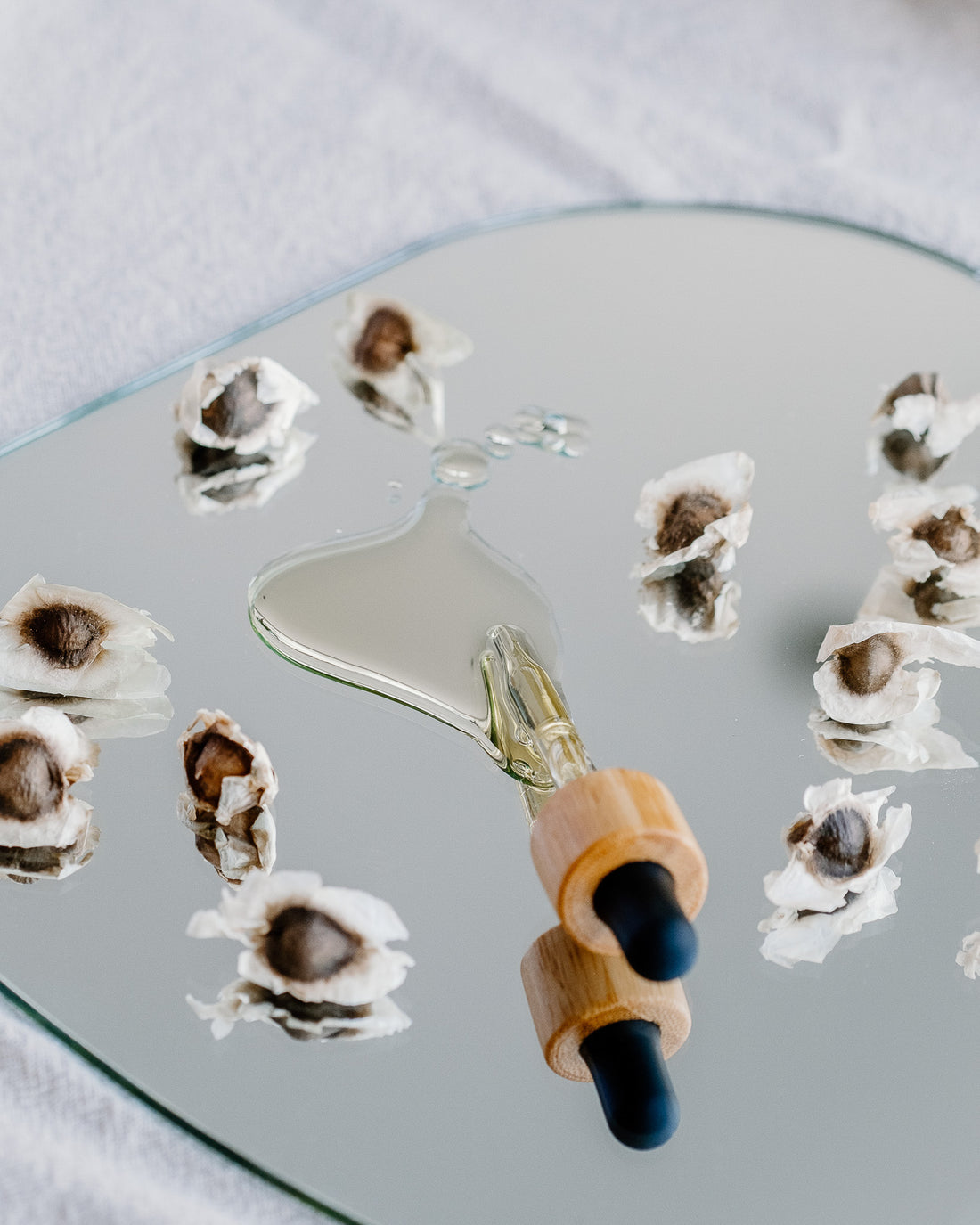
Face care fiction: 6 myths about facial oil
Share
Facial oils have gained immense popularity in recent years as an essential part of a skincare routine. However, there are still many myths and misconceptions surrounding the use of facial oils. These myths can prevent people from using facial oils, or worse, lead to incorrect usage that can damage their skin. In this article, we will debunk six common myths about facial oils and provide you with the facts you need to make informed decisions about your skincare routine.

Myth No. 1 - Facial Oil Causes Breakouts
Fact: Your skin needs oils for protection and hydration.
The skin naturally produces sebum, an oily product formed via the skin’s sebaceous glands. Sebum moisturises and protects the skin from the environment. Excess sebum production, however, leads to oily skin and potential clogged pores - which may eventually cause breakouts and acne.
Natural facial oils are non-comedogenic, meaning they do not clog pores. Moringa oil is one of these natural oils. Other comedogenic oils, such as synthetic and mineral oils, react harshly with the skin, blocking pores and causing pimples. Moringa oil also has anti-bacterial and anti-inflammation properties, reducing the likelihood of breakouts.
Myth No. 2 - It’s just too oily!
Fact: The skin has a naturally high affinity for facial oils.
Natural facial oils are lightweight and easily absorbed by the skin, penetrating beyond the surface instead of staying on top and leaving your face all greasy. Often, environmental conditions, pollution, or overwashing strip the skin of its natural oils, causing the skin to overcompensate. When cleansing, consider gentle, natural products rather than harsh chemicals, to reduce oiliness. Adding the correct facial oil will not cause oiliness, but will provide an extra layer of moisturisation and protection to assist your natural skin oils. 
Myth No. 3 - Facial Oil Isn’t Suitable for Oily Skin types
Fact: The use of certain facial oils can regulate oil production.
To many of us, applying facial oil when you’re already struggling with an overly-oily complexion seems ridiculous, and that may be the case for some synthetic or mineral oils. However, certain natural oils can actually help to down-regulate the production of sebum and oil in the skin, reducing greasiness. Natural oils (including our very own Moringa Oil), when applied topically, inhibit the hormonal processes in skin cells that cause excess oil production.
Fact: Oils penetrate more deeply than cream-based moisturisers.
Oils are lipophilic (fat-loving) by nature, and are able to deeply penetrate the skin’s lipid layer located in the outermost skin layer. This is more effective than moisturisers, which contain lower-concentrations of these skin-barrier penetrating substances. It is perfectly okay to substitute moisturisers with a facial oil as a more effective option. However, if you prefer to use moisturiser or other creams, feel free to add a 100% natural facial oil for greater effect!
Myth No. 5 - Oils Don’t Protect Against the Effects of Ageing
Fact: Facial oils are full of antioxidants!
These ingredients protect against harsh external environmental conditions, such as UV damage, pollution, and chemicals. The wrinkles that we all dread to have and hate to see are based upon the premise of moisture-lacking, damaged skin. Oils, as we all know, lock-in-moisture and prevent skin from dying out. Combined with their antioxidant properties, facial oils slow down the ageing process, increasing hydration. Our Moringa Facial oil contains 46 antioxidants which work in-tandem to provide protection against everyday stress, restore your skin barrier, and ensure that youthful look.
Fact: It’s important to carefully read the labels of all skin care products, especially facial oil.
Look out for cheap filler ingredients such as synthetic oils, additives, synthetic fragrances, or harmful chemicals which can irritate the skin. Keep an eye out for 100% natural oils containing zero additives, as those are the best choice for all your skin needs.
